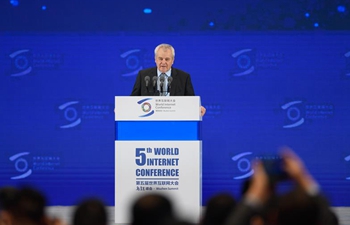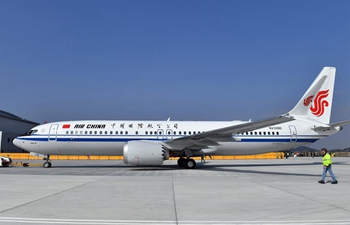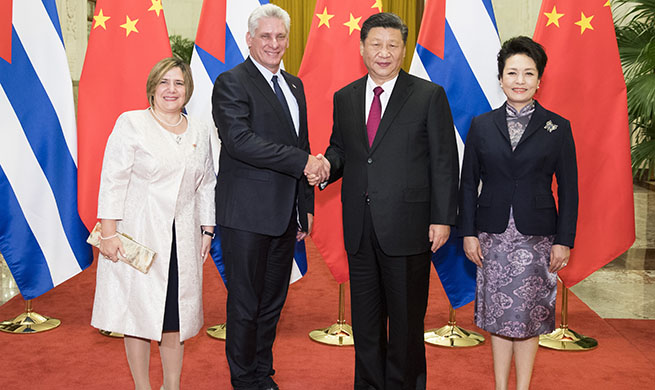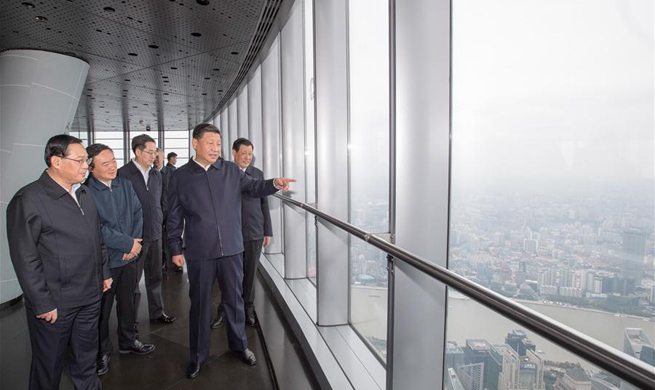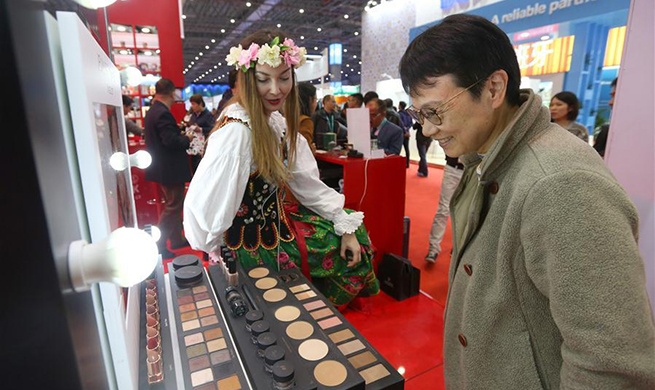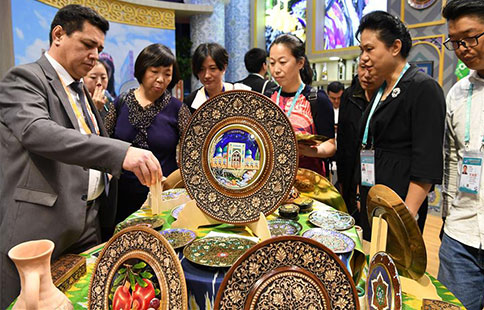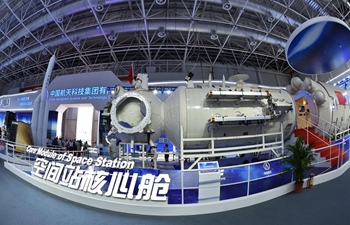LONDON, Nov. 10 (Xinhua) -- Over the week, international businesses, including British companies, have flocked to Shanghai for China International Import Expo (CIIE) to tap the huge market of the world's second-largest economy and seize possibly unmissable business opportunities.
Drawn by the potential of the Chinese market, British International Trade Secretary Liam Fox led a delegation of 50 firms displaying British innovation to the first-ever event, which showcased opportunities for businesses to sell goods into China.
Some British companies have secured lucrative deals with Chinese peers, including Rolls-Royce which signed an engine and maintenance agreement worth 10.13 billion yuan (1.45 billion U.S. dollars) with China's Eastern Airlines, one of the largest deals at the CIIE.
"Coming at this time, the CIIE has highlighted that China's economy will become more open, which is a positive message for businesses everywhere," said Stuart Tait, regional head of Commercial Banking at HSBC Asia-Pacific.
HSBC released a special report at the CIIE to inspire international businesses to shift their strategies to do business in China, underlining the importance of understanding the Chinese consumers.
"To succeed in the future, international businesses must be 'Made for China.' China is no longer just the world's factory; its fast-growing consumer market is prompting international businesses to re-evaluate how and what they sell to China," Tait said.
The report, entitled "HSBC Navigator: Made for China", surveyed 1,205 small and large companies across 11 key global economies that already export to China or are considering doing so.
It found that businesses truly 'Made for China' are targeting those Chinese consumers born after 1980 to drive sales growth, and that technology services, consumer electronics and high-end intelligent equipment will be the fastest-growing sectors in the next three to five years.
It also said the quality of their products will have to appeal to Chinese consumers, and distribution partners and e-commerce platforms are key to success in this market.
David Roth, a senior executive of WPP, a world leader in communications services, said it's important for companies to understand Chinese consumers and to create products and innovation that are absolutely relevant to Chinese consumers.
"They shouldn't assume that products they currently make will necessarily be accepted by Chinese consumers," said Roth, CEO of The Store WPP in EMEA (Europe, Middle East and Africa) and Asia.
"And that to create unique, different products or slightly change products to best meet the large Chinese market is going to be one of the reasons why some companies will succeed in China and some companies will fail," said Roth.
The marketing expert advised international businesses to keep an eye on the second-tier and third-tier cities outside Beijing, Shanghai and Shenzhen, which are growing at a very fast rate with consumers to have a higher disposable income than in the past.
"Those cities probably will represent massive opportunities," he said.
As there are more opportunities now for foreign companies to try selling in China through e-commerce platforms like Taobao or JD.com, they do not necessarily need to start businesses with brick-and-mortar shops in China.
"Once they test their products and know what sells and what doesn't sell through their experiment with e-commerce platforms, it gives them more understanding and knowledge and certainty for a bigger expansion strategy within China," Roth added.





